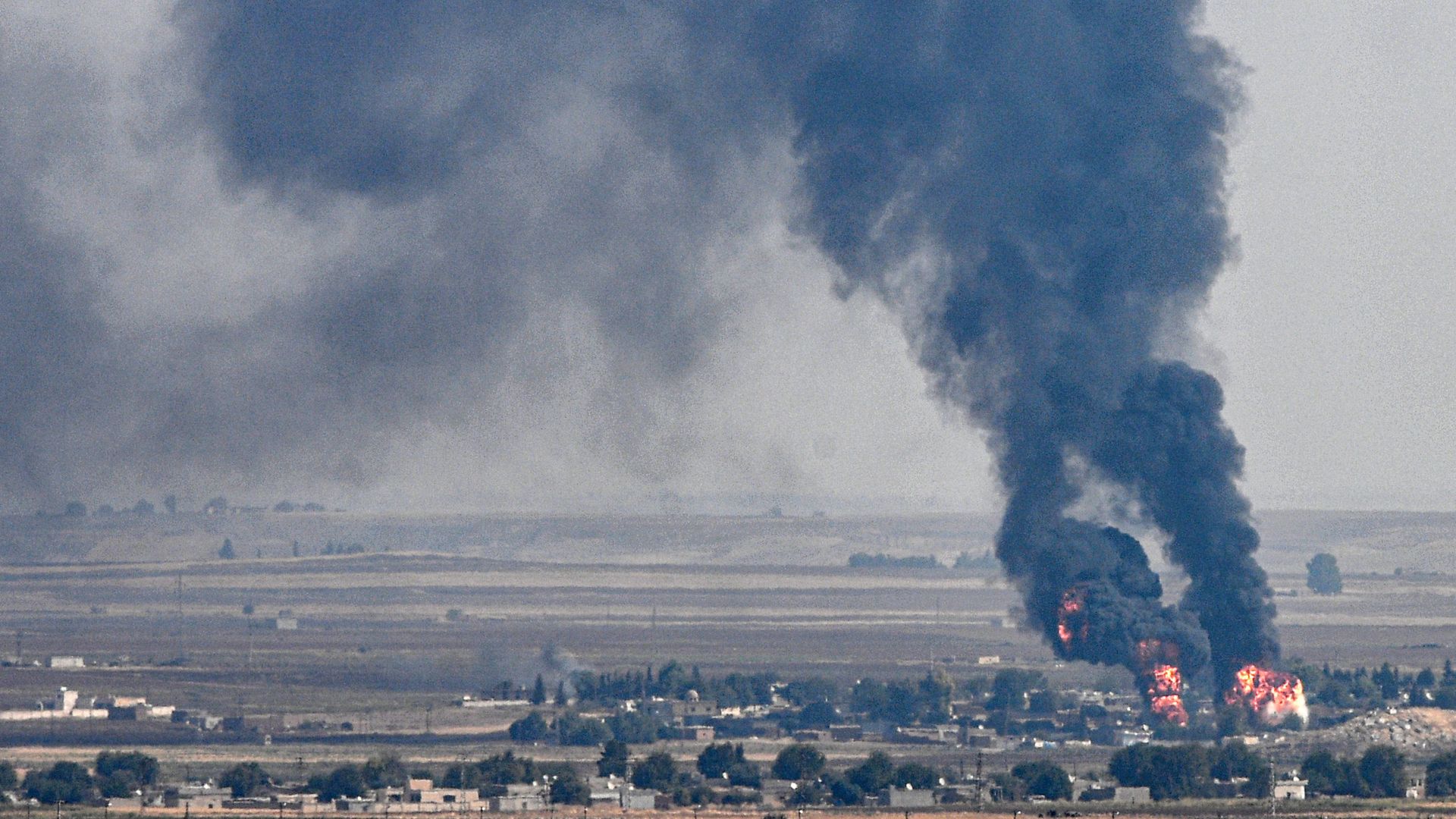Years of muddled U.S. strategy worsened fallout in Syria
Add Axios as your preferred source to
see more of our stories on Google.

The Syrian town of Ras al-Ain during the Turkish offensive, Oct. 17. Photo: Ozan Kose/AFP via Getty Images
The turmoil let loose in Syria this week stems in part from the absence of a clear U.S. strategy to counter terrorism and negotiate a diplomatic solution to the country's bloody civil war.
The big picture: President Trump’s hamfisted statesmanship and disregard for national security expertise notwithstanding, America's Syria policy from the Obama administration onward has instilled doubts among Middle Eastern and European allies, leading even NATO member Turkey to decisively cross the U.S.
What's happening: The U.S. and Turkey announced on Thursday a temporary cessation of hostilities that will allow Turkey to establish a “safe zone” 30 kilometers (18.6 miles) into northern Syria as long as Syrian Kurdish fighters retreat.
- The agreement superficially addresses Turkey’s security concerns and assuages the immediate humanitarian crisis. But more profoundly, it represents a coup for Russia and its lackey in Damascus, Syrian President Bashar al-Assad.
- For Turkish President Recep Tayyip Erdogan, Russia has proved a better guarantor of Turkey's security than the U.S. and now controls the fate of 3 million inhabitants of Idlib in northwest Syria.
- Betrayed by President Trump, the Syrian Democratic Forces (SDF) have rushed into Vladimir Putin's and Assad's arms, leaving the U.S. even more on the outside looking in.
Background: Ankara and Washington have been at odds since Obama decided to arm, train and rebrand the Syrian Kurdish People’s Protection Units (YPG) militia. The YPG is aligned with the Kurdistan Workers’ Party (PKK), which the U.S. and the EU have designated as a terrorist group.
- This was the original sin that prompted Turkey's military divergence from the U.S., though it was later compounded by the weak U.S. response to the Assad regime’s crackdown, which drove the refugee crisis and created fertile ground for violent extremism.
- Trump had continued this policy while trying to smooth Turkey-SDF relations through joint U.S.-Turkey patrols in cities liberated from ISIS and efforts to reorient the SDF away from its YPG core.
The bottom line: Trump’s Syria decision has exacerbated the humanitarian and strategic failures of an eight-year “lead from behind” policy that had already left the U.S. little leverage. The fallout will now hit hardest the Syrian civilians in territory back under Assad's control.
Adham Sahloul is a foreign policy analyst and former researcher at the Atlantic Council's Rafik Hariri Center for the Middle East.
